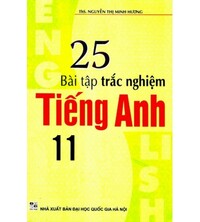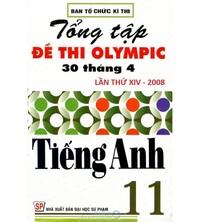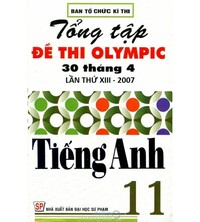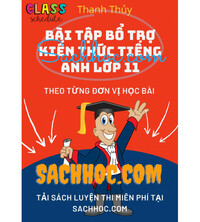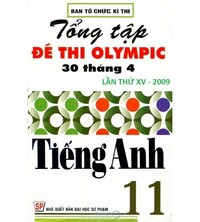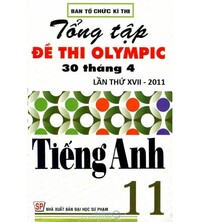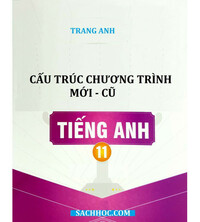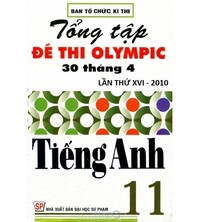Tiếng Anh 11 Unit 6 6.5 Grammar
1. Decide if the statements about road travel in the 1960s true (T) or false (F). Compare with a partner. 2(6.09) Listen to Zoe's grandfather talking about road travel when he was young. Check your ideas in Exercise 1. 3. Read the GRAMMAR FOCUS and answer the questions. 4. Rewrite the statements using would. If would is not possible, use used to. 5. Complete the text with the verbs in brackets.
Bài 1
Used to and would
(Đã từng và sẽ)
I can talk about past states and repeated actions using used to and would.
(Tôi có thể nói về các trạng thái trong quá khứ và các hành động lặp đi lặp lại bằng used to và would.)
1. Decide if the statements about road travel in the 1960s true (T) or false (F). Compare with a partner.
(Quyết định xem những câu nói về du lịch đường bộ trong những năm 1960 là đúng (T) hay sai (F). So sánh với bạn cặp.)
1. Roads used to be quieter.
2. People used to talk about traffic pollution.
3. Cars didn't use to have seat belts.
4. Children would play video games on long journeys.
5. GPS didn't exist so people would follow maps.
Lời giải chi tiết:
1. Những con đường đã từng yên tĩnh hơn. T
2. Mọi người thường nói về ô nhiễm giao thông. F
3. Ô tô không có dây an toàn. F
4. Trẻ em sẽ chơi trò chơi điện tử trên những chuyến đi dài. F
5. GPS không tồn tại nên mọi người sẽ theo dõi bản đồ. T
Bài 2
2(6.09) Listen to Zoe's grandfather talking about road travel when he was young. Check your ideas in Exercise 1.
(Hãy nghe ông của Zoe nói về việc đi lại bằng đường bộ khi ông còn trẻ. Kiểm tra ý tưởng của bạn trong Bài tập 1.)
Bài 3
3. Read the GRAMMAR FOCUS and answer the questions.
(Đọc TRỌNG TÂM NGỮ PHÁP và trả lời câu hỏi.)
1. Which sentences in Exercise 1 describe past actions?
(Những câu nào trong bài tập 1 diễn tả hành động trong quá khứ?)
2. Which sentences in Exercise 1 describe past states?
(Những câu nào trong bài tập 1 diễn tả trạng thái quá khứ?)
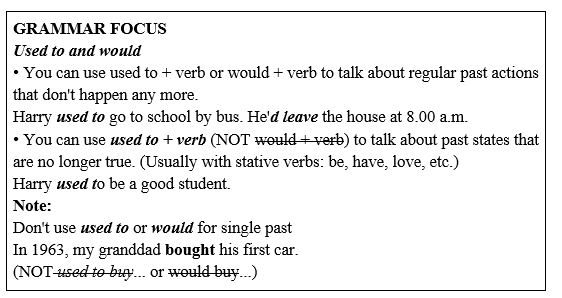
Tạm dịch:
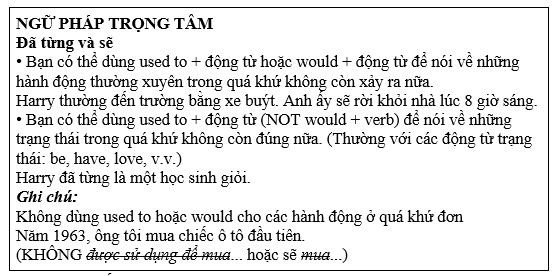
Lời giải chi tiết:
1. The sentences in Exercise 1 describe past actions:
(Các câu trong Bài tập 1 diễn tả các hành động trong quá khứ:)
People used to talk about traffic pollution.
Children would play video games on long journeys.
GPS didn't exist so people would follow maps.
(Mọi người đã từng nói về ô nhiễm giao thông.
Trẻ em sẽ chơi trò chơi điện tử trên những chuyến đi dài.
GPS không tồn tại nên mọi người sẽ theo dõi bản đồ.)
2. The sentences in Exercise 1 describe past states:
(Các câu trong Bài tập 1 diễn tả trạng thái quá khứ:)
Roads used to be quieter.
Cars didn't use to have seat belts.
(Những con đường đã từng yên tĩnh hơn.
Ô tô không có dây an toàn.)
Bài 4
4. Rewrite the statements using would. If would is not possible, use used to.
(Viết lại các mệnh đề sử dụng would. Nếu không thể dùng would thì dùng used to.)
1. Air travel was cheaper than now.
Air travel used to be cheaper than now.
2. Air travel was more comfortable.
3. The flight from London to New York took longer.
4. People smoked on the plane.
5. People wore their best clothes to travel by air.
6. Airports didn't have so many security checks.
Lời giải chi tiết:
2. Air travel used to be more comfortable.
(Du lịch hàng không thoải mái hơn.)
3. The flight from London to New York would take longer.
(Chuyến bay từ London đến New York đã từng mất nhiều thời gian hơn.)
4. People would smoke on the plane.
(Mọi người đã từng hút thuốc trên máy bay.)
5. People would wear their best clothes to travel by air.
(Mọi người sẽ mặc quần áo đẹp nhất của họ để đi du lịch bằng đường hàng không.)
6. Airports didn’t use to have so many security checks.
(Sân bay đã từng không có nhiều kiểm tra an ninh.)
Bài 5
5. Complete the text with the verbs in brackets.
(Hoàn thành văn bản với các động từ trong ngoặc.)
• Use would + verb (where possible)
• Use used to + verb (where would is not possible)
• Use the Past Simple (where would or used to are not possible)
Left or right?
Today, 75% of cars drive on the right, but it 1didn't always use to be (not always be) like that. In fact, everybody used to travel on the left! In Roman times, roads 2_________ (be) dangerous and travellers 3_________ (carry) swords in their right hands.
Travellers on horses 4_________ (ride) on the left side of the road so that the right hand was free to use the sword. Then Napoleon 5_________ (change) the rule. Why? Because he was a revolutionary! Before the French Revolution, the aristocracy 6_________ (travel) on the left and poor people 7_________ (stay) on the right. After the Revolution, the aristocracy joined the poor people on the right and driving on the right 8_________ (become) the new law. What about the rest of the world? China, Portugal, Sweden and parts of Canada used to drive on the left and only changed the law during the mid-twentieth century. More than fifty countries including the UK, Australia, Japan and India still drive on the left today.
Lời giải chi tiết:
2. used to be 6. would travel
3. would carry 7. would stay
4. would ride 8. became
5. changed
Left or right?
Today, 75% of cars drive on the right, but it 1didn't always use to be (not always be) like that. In fact, everybody used to travel on the left! In Roman times, roads 2used to be dangerous and travellers 3would carry swords in their right hands.
Travellers on horses 4would ride on the left side of the road so that the right hand was free to use the sword. Then Napoleon 5changed the rule. Why? Because he was a revolutionary! Before the French Revolution, the aristocracy 6would travel on the left and poor people 7would stay on the right. After the Revolution, the aristocracy joined the poor people on the right and driving on the right 8became the new law. What about the rest of the world? China, Portugal, Sweden and parts of Canada used to drive on the left and only changed the law during the mid-twentieth century. More than fifty countries including the UK, Australia, Japan and India still drive on the left today.
Tạm dịch:
Trái hay phải?
Ngày nay, 75% ô tô lái bên phải, nhưng không phải lúc nào cũng như vậy (không phải lúc nào cũng vậy). Trên thực tế, mọi người thường đi bên trái! Vào thời La Mã, những con đường từng rất nguy hiểm và những du khách sẽ cầm kiếm trên tay phải.
Du khách cưỡi ngựa đi bên trái đường để tay phải được tự do sử dụng kiếm. Sau đó, Napoléon V đã thay đổi quy tắc. Tại sao? Vì ông là một nhà cách mạng! Trước Cách mạng Pháp, tầng lớp quý tộc đi bên trái và những người nghèo ở bên phải. Sau Cách mạng, tầng lớp quý tộc cùng với người nghèo đi bên phải và lái xe bên phải đã trở thành luật mới, phần còn lại của thế giới thì sao? Trung Quốc, Bồ Đào Nha, Thụy Điển và một số vùng của Canada từng lái xe bên trái và chỉ thay đổi luật vào giữa thế kỷ 20. Ngày nay, hơn 50 quốc gia bao gồm Vương quốc Anh, Úc, Nhật Bản và Ấn Độ vẫn lái xe bên trái.
Bài 6
6. Write six sentences about your life when you were ten. Use used to or would. Use the suggestions in the box or your own ideas.
(Viết sáu câu về cuộc sống của bạn khi bạn mười tuổi. Sử dụng used to hoặc would. Sử dụng các gợi ý trong hộp hoặc ý tưởng của riêng bạn.)
clothes you wore sports you did
food you liked / didn't like things you read
music you listened to your bedroom
I didn't use to like mushrooms or green beans.
(Tôi không thích nấm hay đậu xanh.
Lời giải chi tiết:
I would wear different dresses whenever I had classes at school.
(Tôi mặc những bộ váy khác nhau bất cứ khi nào tôi có lớp học ở trường.)
I didn't use to like onions.
(Tôi đã từng không thích ăn hành tây.)
I didn’t use to listen to rock music.
(Tôi không quen nghe nhạc rock.)
I would play badminton after school.
(Tôi sẽ chơi cầu lông sau giờ học.)
I used to like reading comics on the bed.
(Tôi đã từng thích đọc truyện tranh trên giường.)
I used to have a lot of dolls in my bedroom.
(Tôi từng có rất nhiều búp bê trong phòng ngủ của mình.)
Search google: "từ khóa + timdapan.com" Ví dụ: "Tiếng Anh 11 Unit 6 6.5 Grammar timdapan.com"
